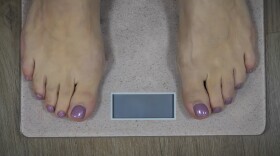Mara Gordon
-
Raising two kids while living with an autonomic nervous system disorder taught Jessica Slice to embrace interdependence. Her story is a reminder to parents of the power of asking for help.
-
Casey Johnston spent years running and restricting calories. When she started weightlifting, she rebuilt muscle mass — and her relationship with her body.
-
Taking the drug made one writer feel so sick she quit and focused on healthy habits instead of her body size. Turns out, 65% of people using GLP-1 drugs for weight loss quit within a year.
-
What's a typical vacation activity for doctors? Work. A new study finds that most physicians do work on a typical day off. In this essay, a family doctor considers why that is and why it matters.
-
Yes, as Oprah enthused, the drugs help people shrink their bodies. But the psychological damage of weight stigma can't be so easily cured, a doctor writes.
-
Kate Manne tried to shrink her body for years before embracing her size as part of a "natural, normal human variation." She says the fight against fat phobia must start in the doctor's office.
-
A new book argues that the arts have a role to play in shaking up the status quo in the American health care system and creating 'desperately needed culture change.'
-
A physician decided to stop talking to patients about weight, and focus on health instead. But the new weight-loss drugs forced her to rethink how to help patients without feeding into stigma.
-
A judge's ruling puts access to the abortion drug mifepristone in limbo, pending further court decisions. But there's another drug that is safe and effective at ending early pregnancy.
-
Getting abortion medication online is easier than ever thanks to regulatory changes. The practice is pushing the boundaries of the traditional doctor-patient relationship.










